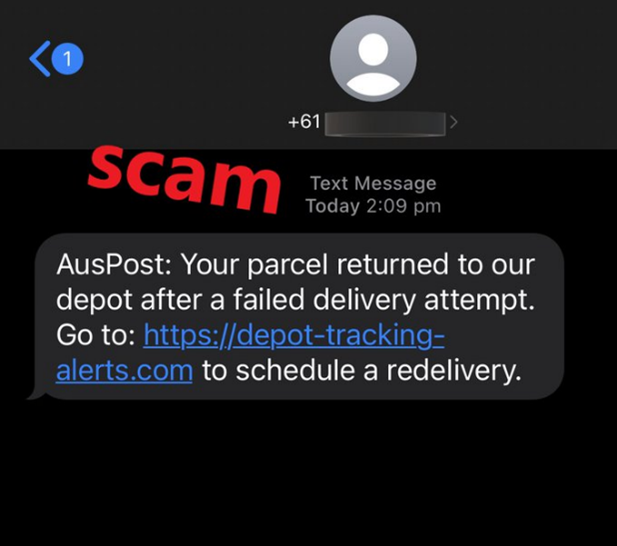Current Internet Scams Deceiving Australians
Lately, it feels as though it is almost every other day that we are receiving scam emails or text messages. Because of this we wanted to highlight the types of scams that are circulating in Australia currently and how to better recognize them and avoid falling victim to data and financial loss.
Phishing Attacks
Phishing attacks refers to SMS, phone calls, or emails which try to trick people in to revealing sensitive information such as personal information and bank details. The messages and calls come from what seems to be legitimate businesses known to the user such as post offices, financial organisations, and telecoms providers. The scammer will try to get you to click on corrupted links which seem legitimate or supply sensitive info through fabricated login pages and user ‘authentication’ processes. They will attempt to get info such ass your phone number, credit card numbers, account numbers, and addresses which they can then use to steal your identity and hack your accounts.

Some of these phishing scams will instead of attempting to steal your identity, will attempt to trick you in to sending money directly to them. A recent example of this is a PayID scam circulating on Facebook Market place. The scammers pose as a buyer and contacts the seller requesting to pay with PayID. Th scammer then sends a fake email informing the seller that they need to transfer funds over due to hitting their PayID limit. This tricks the seller in to paying money directly to the scammer.
“Hi Mum” Family Impersonation Scam
This scam has been circulating for a while in Australia but is still consistently being reported to the ACCC. It consists of a scammer messaging their victim posing has their child, parent, or friend claiming that they have lost/ broken their phone and are temporarily using a different one. This scam aims to tug at the heart strings of the victim leaving them vulnerable and more likely to do what the scammer asks. The scammer will usually ask for an urgent money transfer due to being unable to access their internet banking or something of the like.
If you are ever contacted by an unknown number claiming to be someone you know, ensure that you can be certain that they are who they say they are by ringing them from a preestablished phone number. If they answer, you know that the other is a scam. If they do not answer, try asking a scammer a personal question that only your loved one would know the answer to. This will help you confirm the identity of the person behind the screen.
It is important not to trust these messages just because they know your or your loved one’s name. Some of these scammers have been able to access victims contact information because attempting to scam them meaning they know the names of you and your loved ones and can use this to try to legitimise their claims and requests.
‘Flubot’ Scam
the Flubot is where scammers send you a text message attempting to get you to click on a link. He message will often be about a missed call, voicemail, or parcel delivery issue. If you mistakenly click the link it will attempt to install malware on to your device which will give the scammers access to all your information including your passwords and banking information.

To avoid falling victim to Flubot scams, never click on suspicious links are links which you cannot identify the sender of. If the message seems confusing, ambiguous or like it does not pertain to you delete it and report it to the ACC
Lottery Scam
Lottery scams are usually seen on email. The email will advise you that you have one some big prizes in a lottery or sweepstake competition you did not enter. These scams often use the names of legitimate lotteries (often international lotteries) in order to seem legitimate.
You cannot win from any o these overseas lotteries unless you buy a legitimate ticket from the country it is from. A good rule of thumb is if it seems too good to be true it usually is.
Emergency Response Themed Scam
These scams come about when scammers try to take advantage of unfortunate situations and the communities charitability. After community emergencies such a bushfire, flood, or COVID-19 outbreak, scammers will try to trick people in to giving them money by posing as a charity or community fund. do not donate to charities directly through links sent to you through email or text. Instead go to the charities trusted website or check if the charity is authorised to accept community donations through https://www.acnc.gov.au/charity/charities
If you’ve been a victim of a scam, you can report it to the ACCC via the report a scam page to help protect others from similar scams. Visit www.scamwatch.gov.au/report-a-scam
For information on Scam prevention services visit our website at http://www.dataup.com.au/. To speak with a professional with over 7 years’ experience in this space, call (08) 7200 6080.
Follow us on:
Facebook – https://www.facebook.com/DataUPAus
Instagram – https://www.instagram.com/dataupaus/
Twitter – https://twitter.com/DataUPAus
LinkedIn – https://au.linkedin.com/company/dataupaus